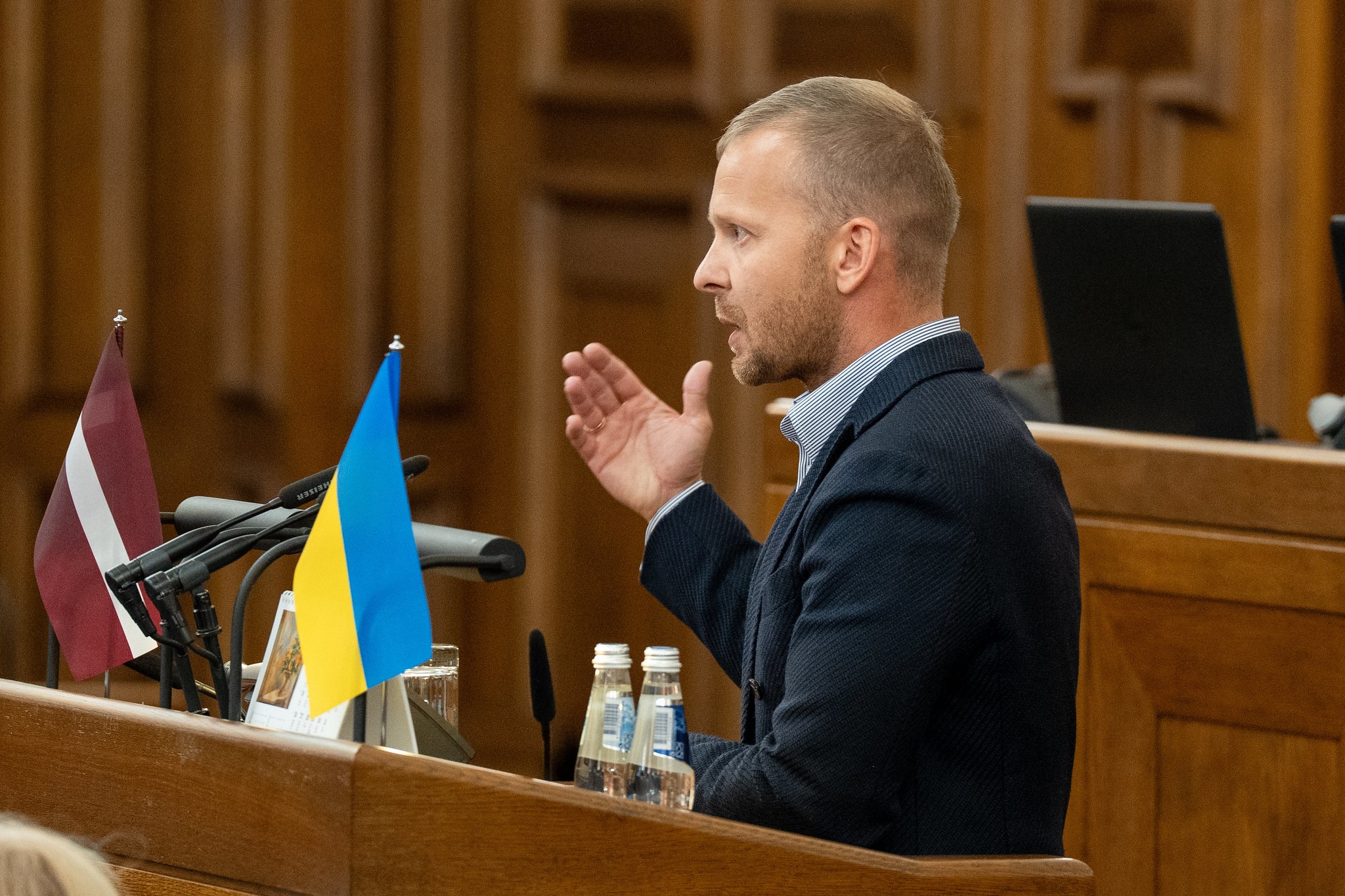
Main narratives:
- Latvia is Russophobic;
- Prosecution of Russian speakers.
Overview:
At the beginning of June, Aleksejs Roslikovs, leader of the Stability! party, sparked major controversy by concluding an emotional parliamentary speech with the declaration in Russian, “There are more of us! We cannot be banned!” in response to a National Alliance proposal to limit Russian language use in public spaces. Latvia’s State Security Service subsequently opened criminal proceedings against the MP for allegedly assisting Russia and inciting national hatred.
In his social media, Roslikovs continued constructing a comprehensive victimization narrative across multiple themes on his social media platforms. His primary messaging revolves around positioning himself as a defender of Russian speakers’ rights, framing his travel ban due to criminal proceedings as evidence of systematic oppression, and claiming to file complaints with the European Commission about alleged discrimination against Russian speakers in Latvia.
At the same time, someone hung a doll from a post with a sign, “You are going to die ROSLIKOV,” next to what looks like the office of his party. In another incident at a football game was when football fans had a poster with “Roslikov is vatnik (derogatory term describing Russians) slut”. Roslikovs characterized both incidents as him being targeted by extremist groups. Roslikovs described football fans with offensive posters as a “radical group for extremism and lawlessness” that he called “ULTRAS,” suggesting organized persecution against him. He called people simulating his public hanging as “radicals” and characterized this as evidence of a “controlled organization with specific new goals” against him, and questioned what their “curators” are preparing.
This all indicates a rise in tension between both ethnolinguistic groups, where radicals within both are fanning the tensions. Roslikovs uses these incidents to portray the National Alliance and the broader Latvian establishment as persecutors of the Russian minority, positioning himself as their primary defender while suggesting broader conspiracies against Russian speakers in Latvia.









